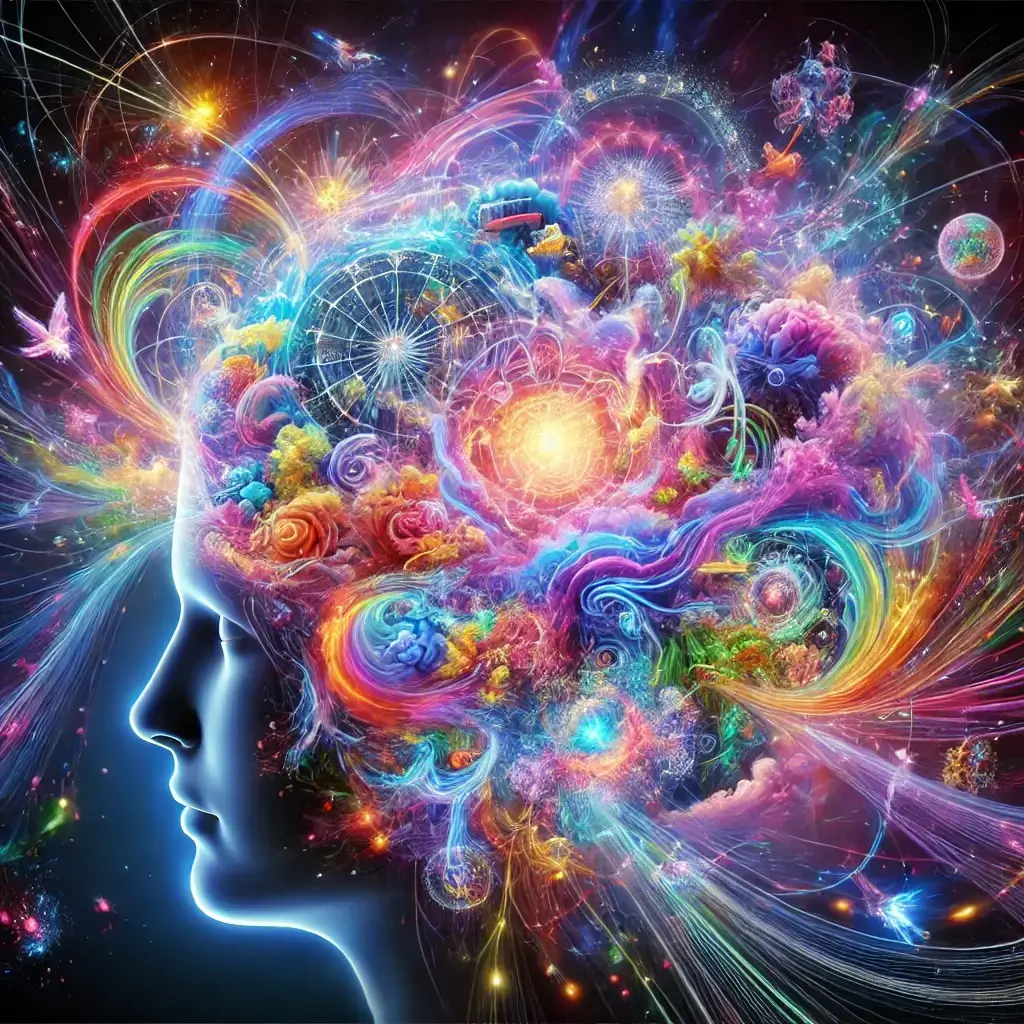
Exploring Hyperphantasia: Do You Have a Supercharged Imagination?
Table of Contents
Our brain is a complex system that continuously balances many mental processes. Among them is hyperphantasia, the condition marked by an exceptionally vivid imagination. Those who deliberately activate rich, complex imagery have it. Although it may be a great advantage in many disciplines, it might be overwhelming as well. Thus, vivid imagination may become intolerable without appropriate mental control, particularly in circumstances requiring attention or emotional stability.
Those with a strong visualization capacity may take their cognitive ability under control by learning to train the brain. It improves their mental power rather than disturbs their lives. So let’s check how to do that by investigating the supercharged imagination closely.
Understanding the Mental Imagery Spectrum Between Hyperphantasia and Aphantasia
Mental images exist on a spectrum where intense visualization is at one end and aphantasia is at the other. Examining how your brain processes pictures may help you better grasp your position on this spectrum. So how to know if you have hyperphantasia? Individuals with enhanced visual mental perception may call up very realistic, vivid pictures in their brains. When asked to see a red apple, for instance, they would “see” the precise texture, sheen, and color, almost as if it were there in front of them. Scientifically, hyperphantasia is the result of a very active visual cortex that processes pictures in the brain. The intensity of memory and manipulation of images comes from the visual cortex’s hyperactivity.
Those with aphantasia, on the other hand, go through the reverse. They cannot at all create mental pictures. If you ask them to imagine the same red apple, they might know what an apple looks like. However, they cannot see it in their mental eye. Although this might appear to be a drawback, aphantasia offers several advantages. Many individuals with this unusual mind activity thrive in logical disciplines such as mathematics, physics, or engineering, where abstract thinking free from visual disturbance is helpful. However, in artistic endeavors or disciplines mostly dependent on visual memory, aphantasia might provide considerable difficulties.
Both phenomena are well-known and recognized worldwide. Two people with aphantasia include scientist Craig Venter behind genome sequencing and co-founder of Pixar Ed Catmull. On the other hand, well-known people supposedly with hyperphantasia include Nikola Tesla and Stephen King. While King described his imagination as visually powerful, Tesla was known for mentally developing and testing his ideas before bringing them to life.
Knowing this helps people understand they are not alone and may make use of their particular mental aptitude in the areas of both personal and professional life.
What Does Hyperphantasia Feel Like?
Strong mental picturing is akin to having in your head a high-definition movie. Often packed with bright colors, textures, and intricacies beyond what most individuals can see, people with this capacity may envision mental imagery with great detail. If you ask someone with hyperphantasia to image a sunset, for example, they may see each cloud lit by golden light, feel the sun on their skin, and even witness the sun’s gradual movement sinking below the horizon. This mental picture provides a very immersive experience and seems practically genuine.
Hyperphantasia seems much more detailed and powerful than normal mental images. While extra vivid imagination assists in constructing images in the mind with almost photographic accuracy, others with typical mental vision may be able to roughly imagine a scenario.
This enhanced imagination comes in handy in many different spheres. Like Nikola Tesla, who could see whole ideas before physically creating them, this ability enables mental testing of hypotheses and equipment design in scientific studies. It also provides an infinite source of inspiration for authors and artists. Thus, they may vividly see events and people in great detail, producing extremely imaginative works.
Those with hyperphantasia may also be rather good at building a memory palace, in which case they may mentally store and arrange data in rich environments for maximum recall. By linking knowledge with stunning mental pictures, this vivid vision aids in more efficient retention in games or activities like a memory game.
This enhanced mental imagery may have great benefits; it makes creative activities, memory tasks, and problem-solving more interesting and efficient, transforming the mind into a dynamic canvas for unlimited discovery.
Knowing Whether You Have Hyperphantasia
If you wonder if you have hyperphantasia, there are techniques to evaluate your mental picture capacity. Doing a visualization test is one often used approach. Consider, for instance, a ripe orange: Can you nearly taste its sweetness, envision its color, and feel its textured skin? You could have hyperphantasia if your mental picture is very crisp and exact.
Reflective activities provide yet another means of self-evaluation. Think back on old occurrences or picture future ones. It indicates increased visual imagination if you can virtually “see” them with great detail, almost as if you are reliving the situation.
To better grasp their place on the mental imagery spectrum, some further contrast hyperphantasia vs aphantasia. Those with hyperphantasia develop vivid mental images; those with aphantasia cannot build mental images.
Understanding this capacity can help you to see your abilities, particularly if you shine in memory-based and creative work. Accepting your unique mental capability leads to opening new opportunities.
Finally, Embracing Your Unique Mind
Hyperphantasia is a wonderful window into the unbounded power of the human mind. Whether you have strong mental images or have aphantasia, both phenomena draw attention to how our brains work. Understanding and accepting your place on this spectrum can help you discover fresh approaches to use your mind capacity. Knowing your mind’s strengths maximizes your ability whether for memory development, problem-solving, or creativity.